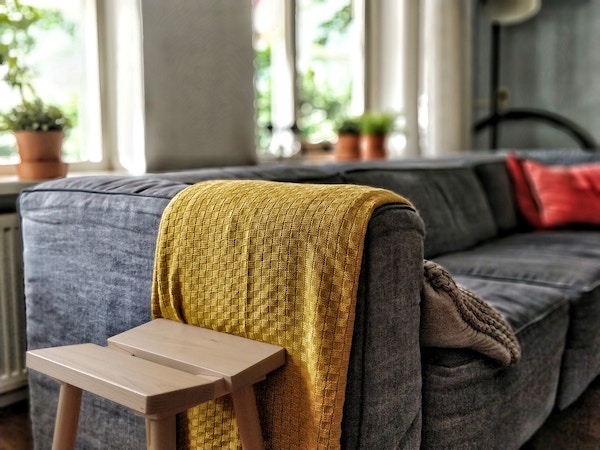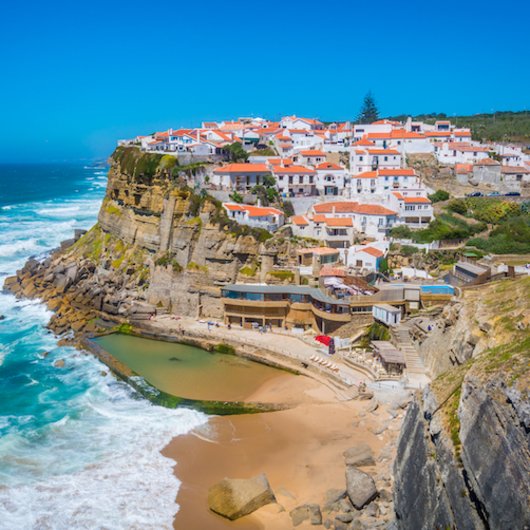Potential pitfalls of buying property in Portugal

Table of contents
If you want to buy a home in Portugal, you're obviously dreaming of being happily settled in and putting your feet up with a Super Bock or a glass of vinho verde. But in between seeing the property you want and being able to relax, there are a number of nasty little pitfalls you need to watch out for, or your dream could be spoiled for good. Fortunately, we're here to help you with some good advice.
One big pitfall that could catch buyers from elsewhere is the law of subrogation. This attaches debts to the property, rather than to the borrower, so that if you're not careful, you could end up being liable for ten years' unpaid taxes, three years of electricity bills, and even a huge mortgage or personal debts that have been secured against the property.
(By the way, if you're moving to Portugal and want to buy a car when you arrive, you need to know that the same applies to cars. Make sure it's free of debt when you buy by using a service like Autocheck!)
Download the complete guide for free
Ready to turn your dream of owning property in Portugal into reality? Our comprehensive guide, "How to Buy Property in Portugal," is your essential resource for confidently navigating the Portuguese real estate market.
Fill out the form below and download your copy now.

Check all the owners of your future house
 Fortunately, any competent lawyer will find any debts that are attached to the property by checking the Certidão de Teor, or registered title. They should also check utility bills and local taxes are up to date before you sign the contract. But this is one reason you need to use a lawyer who's well versed in Portuguese law, not your family solicitor back home.
Fortunately, any competent lawyer will find any debts that are attached to the property by checking the Certidão de Teor, or registered title. They should also check utility bills and local taxes are up to date before you sign the contract. But this is one reason you need to use a lawyer who's well versed in Portuguese law, not your family solicitor back home.
Another possible problem buying in Portugal - less so with urban properties or newer properties, but remarkably often with rural houses - is the dispersion of ownership. Often, property has been passed down in the family, and cousins, aunties, or grandchildren all have small interests in the estate. Since Portugal has traditionally had a high emigration rate, there could be a cousin living in Brazil, Bordeaux or Basildon who owns part of the property and could block the sale. Even in the best case scenario, trying to get hold of a distant relative who emigrated some time ago can delay a sale by weeks or months. A good lawyer will check the property's owners and can advise you if there is likely to be a difficulty - if you're in a hurry to complete, you might want to pick another property.
On the other hand, some purchasers of beautiful rural houses for renovation report waiting over eighteen months to finalise their purchase - and are still glad they did so. If that's the cost of securing your dream home, they say, it's worth it!
Make sure you know what you are buying
Rural properties can also be a bit of a problem when it comes to the title deeds. Sometimes a property is made up of numerous small parcels - they may be very small strips indeed. Some may never have been sold, while others may have been subdivided. In communities where 'João owns the field as far as that big stone there' was the usual way of demarcating property, it can be difficult to find out exactly what you're buying. Agents are often clueless when it comes to working out the details, so again, you need a good lawyer or agent.
Buildings may also have been put up with no administrative record. That might mean your pigsty has to come down, which isn't so serious, but if it affects the house itself or a building you were planning to convert, it could be disastrous. However, luckily there's a legal procedure to solve the problem. You may need to ensure that your purchase includes a 'rectification' not only ensuring the record is up to date, but also legalising any existing buildings that don't have a planning permission. The major difficulty is likely to be agreeing with the vendor to get things sorted out - and working out who should pay for it.
Making sure the deeds are correct can be a thankless task. Agents may be little or no help so again, finding a really good and thorough lawyer is key to a successful purchase.
Look around in the most vivid places of Portugal

Check if furniture goes with the house
You may expect to move into a completely empty property. That's great in theory - but often it won't happen. If you're happy to take over a hundred years' worth of possessions - including perhaps some wonderful old furniture, but also a huge framed photograph of great-grandma at her most scary and cupboards full of old newspapers - go ahead! Otherwise, make sure that you raise this issue during the purchase process and reach a satisfactory arrangement.
With resort properties, on the other hand, it's not uncommon for buyers to make a bid for the furniture as well, even though properties are generally marketed as unfurnished. If you see an ideal seaside apartment that's been really well furnished, and you're not looking forward to the job of buying furniture for a holiday home when your time there will be limited to a couple of weeks a year, this is an effective way to kill two birds with one stone.
Back up your money
There's one other little legal problem we ought to talk about. While in the UK, you'll be paying your deposit to a solicitor, or in France, to an agent which has compulsory indemnity insurance or to a notary, in Portugal estate agents (and some legal firms) don't have financial guarantees. That could cost you your deposit if the agency goes bust. Check whether your agent is bonded, and ensure your money is held in a separate client account, not as part of the firm's own funds.
Finally, there is one big pitfall to buying in some areas in Portugal, particularly on the Algarve. You might have visited the property in the summer, but if you're aiming to live there all year round, do you know what things are like in winter? Some areas of the coast are summer-only destinations and most of the businesses close down over the winter, so there will be no shops, no bars, no nightlife, and possibly no neighbours, either. If you want an all year round destination, Cascais or Estoril might be much more suitable - weekenders and commuters from Lisbon keep them lively outside the peak season. Or you might decide to purchase in Lisbon, Porto, or one of the larger provincial towns, instead.
If you want an all year round destination, consider Cascais, Estoril, Porto or Lisbon; Algarve can be empty in winter.






